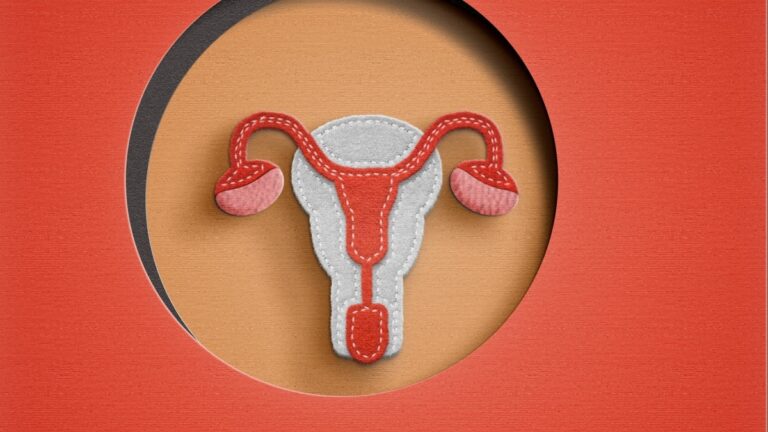Indian women often neglect their reproductive health. Data shows that one in six women suffers from PCOS (polycystic ovarian syndrome), but most of them are undiagnosed.
Polycystic ovarian disease (PCOD), a younger relative of PCOS, is another disease on the rise in India, but is often overlooked. PCOD can lead to infertility if not treated in time. However, the good news is that it can be managed.
What is the difference between PCOS and PCOD?
If you search for PCOD (Polycystic Ovary Syndrome) online, you'll instead find tons of articles about PCOS (Polycystic Ovary Syndrome), but they don't really mention PCOD.
PCOS and PCOD are two sides of the same coin, but there are differences.
Dr. Sushma Tomar, an obstetrician and gynecologist at Fortis Hospital in Mumbai, explains that PCOS is a disease that affects the function of a woman's ovaries and can make it difficult for a woman to conceive.
“This can be due to genetics, lifestyle changes, and hormonal imbalances,” says Dr. Tomer.
She says PCOS symptoms can be diagnosed by a medical history, including oligomenorrhea (irregular periods), hirsutism (excess hair is most noticeable around the mouth and chin), and acne.
However, polycystic ovarian disease (PCOD)is part of PCOS” Dr. Tomer explains where the ovaries bulk up. However, with PCOD, “patients may or may not have hormonal imbalances.”
Dr. Sweta Lalgudi, a gynecologist at Jinoba Shalvi Hospital in Mumbai, agrees, saying that PCOD refers to the presence of multiple cysts on the ovaries.
“It's important to note that while both conditions can impact fertility and overall health, an individualized approach is required,” says Dr. Lalgudi.
“PCOD can be managed”
As we mentioned earlier, PCOS and PCOD both affect a woman's reproductive health, but experts say PCOD can be managed through a variety of lifestyle changes.
On the other hand, although it is nearly impossible to reverse PCOS, it is possible to manage the symptoms.
Dr. Lalgudi says: [PCOD] Although it may seem daunting, recent research suggests that PCOD can be managed with appropriate lifestyle changes and medical interventions. ”
According to her, PCOS poses a greater challenge because it involves hormonal imbalances and metabolic issues.
How do you manage PCOD?
Both experts say PCOD can be managed through “lifestyle changes.”
Dr Tomer said: “Lifestyle changes are the first line of treatment because these patients are insulin resistant, so carbohydrates and sugars are not digested.”
But what are these changes? Here's what the experts say.
eating habits
1. What to eat
Both experts emphasized the importance of eating a balanced and appropriate diet.
- People with PCOD should choose a healthy diet that's low in sugar and oil, Dr. Tomer says, and it's important to make sure your diet includes carbohydrates.
- Dr. Lalgudi advises consuming foods such as fatty fish and omega-3 fatty acids found in flaxseed. These foods are thought to have anti-inflammatory properties that can reduce symptoms of PCOD.
- She also recommends adding tofu to your diet, which can support hormonal balance and keep you feeling full for longer.
- “Foods high in antioxidants, such as berries, spinach, and nuts, are great options for PCOD patients because they help reduce the oxidative stress and inflammation associated with PCOD,” says Dr. Lalgudi.
foods to avoid
- According to Dr. Sushma Tomer, women with PCOD should avoid eating bakery products, fried foods, butter, and cold drinks.
- Avoid smoking and alcohol.
Exercise of rights
Apart from eating right, another important step to managing PCOD is getting the right exercise.
Megha Kishore, a marathon coach and fitness trainer from Gurugram, says that incorporating regular exercise into your daily routine can improve insulin sensitivity, promote weight management, regulate hormones, reduce stress, lift mood, and improve cardiovascular health. It states that there are many benefits to managing PCOD, such as overall support. health.
“To get the most benefit from exercise in combating PCOD, it's important to choose activities that you enjoy and can stick to long-term,” says Megha.
What is the best training for PCOD?
Dr. Megha says that the best workout for PCOD typically includes a combination of aerobic exercise such as brisk walking, jogging, and cycling, strength training using weights or resistance bands, and flexibility exercises such as yoga and stretching. I gave advice.
“Aim to do at least 150 minutes of moderate-intensity aerobic exercise or 75 minutes of vigorous-intensity aerobic exercise a week, in addition to strength training at least two days a week,” Megha says. Masu.
Add appropriate supplements
If you have PCOD, apart from a healthy lifestyle, you may need to add appropriate supplements, such as vitamins, to your lifestyle. However, always remember to consult your doctor before starting any new supplements.
Please remember again. In extreme cases, the emotional burden of managing PCOD's other symptoms while also dealing with infertility can be difficult for many women, says Dr. Lalgudi.
“People with PCOD must seek appropriate medical guidance and support to address not only the physical but also the psychological aspects of this condition,” she says.
summary
Women diagnosed with PCOD can see significant improvement in their symptoms over time by focusing on maintaining a healthy weight, regular exercise, and eating a nutrient-dense, balanced diet.


